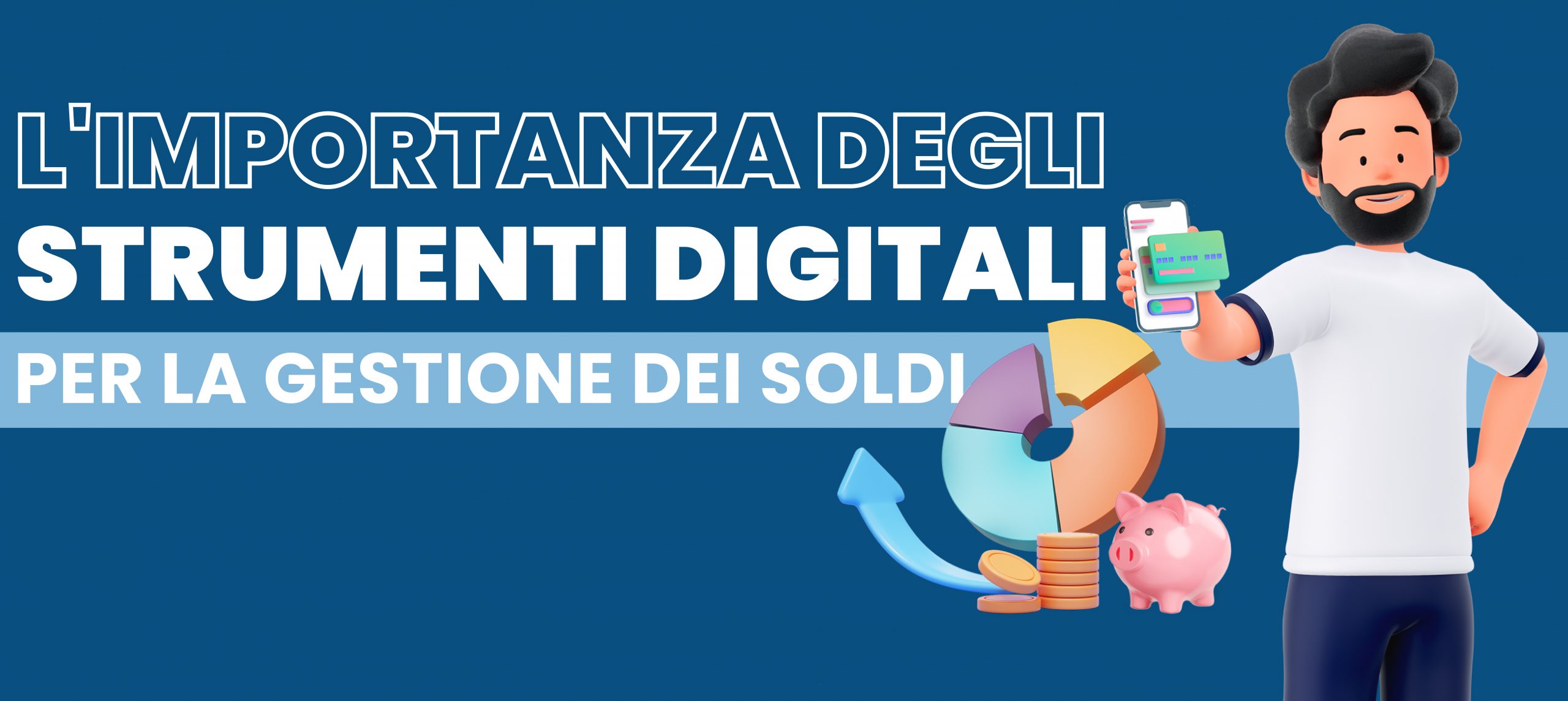
Saving and investing is easier with digital services
For several years, the digitalisation process has been radically changing the way we live: we can no longer do without the devices with which we book restaurants and trips, rent means of transport, make purchases and payments. Most jobs today couldn’t exist without a PC, a smartphone and an internet connection.
From online shopping to the use of bank apps, to contactless payments, digitalisation has also revolutionized the way in which personal finances are managed. If previously it was necessary to go to the bank to save, invest or make a transfer, today, using digital tools to manage money has become an increasingly widespread habit. As confirmed in the “Digitalisation and financial awareness” survey carried out by the Museum of Saving in collaboration with Episteme and with the support of Intesa Sanpaolo, 80% of people use apps for payments, 73% appreciate apps for managing expenses and home banking has become the main channel for accessing the bank.
Instead of using Excel sheets or notepads to track income and expenses, apps and digital tools attract the attention of people who are unfamiliar with technology, thanks to intuitive graphs and easy-to-use interfaces. In addition to having a complete picture of the financial situation, digital tools allow us to create real savings habits based on everyone’s availability and objectives. Not to mention the forecasting and analysis functions which are more precise and save us time. Some apps also allow you to set aside a small sum of money every time you reach a fitness goal, for example, by connecting to other applications for physical well-being.
Among the most popular financial management tools there are:
- Money managing app with many functions, such as that of a virtual piggy bank, or that of establishing specific savings goals such as holidays, emergencies, the purchase of a car or a house, or predicting the time needed to achieve these goals, to categorize expenses between necessary and superfluous goods and to limit them;
- Home Banking apps and websites with all the features and services of a bank, but virtual;
- Digital tools for online payments or for investing in cryptocurrencies;
- App for dividing and managing family, business or group expenses. Some are equipped with expense analysis and grouping tools useful for managing several accounts, even at the same time.
Digitalisation helps financial inclusion
Advantages such as the convenience, accessibility and efficiency of digital tools help to create great trust in digitalisation. Applications, websites and software dedicated to finance offer immediate access to bank accounts, allowing you to check balances, movements and payments, keep track of expenses and make financial decisions, such as an investment, with a simple click. And even if the PC continues to be preferred for banking operations due to the size of the screen and the convenience of the keyboard, according to the “Digitalization and financial awareness” survey, the smartphone is recognized as having greater potential for 69% of people, because it is a personal tool, always connected and within your reach.
Regardless of geographical position and social origin, everyone can access and use, for example, the same transaction systems, if they have an internet network. In short, digitalization has made access to financial services simpler and faster for everyone, taking a step forward towards financial inclusion.
Digital skills alongside financial ones
Technology helps in the management of personal finances, encouraging you to increase your knowledge about savings and investments to make more informed decisions and increase your financial well-being.
For this to happen, it is not enough just to know how to use a smartphone, but it is also necessary to have basic knowledge of finance, as stated during the international conference “Digitalization and Financial Awareness”, in the section “Digitalization, financial knowledge and financial decisions” by Daniela Marconi, head of the financial education division for young people at the Bank of Italy, Marco Marinucci, researcher and Data Analyst for the Bank of Italy and Giovanna Paladino, director and curator of the Museum of Saving. In fact, while digital skills increase the ability to save, thanks to the increasingly widespread use of apps to accumulate small sums of money every day, they have no role in investment choices. Investing requires greater awareness and more confidence, closely linked to self-confidence and what is known about the functioning of the financial system. To move from being savers to becoming aware investors, what matters is having the right financial knowledge.
Even Millenials, even though they are digital natives and are familiar with technological tools, must pay attention to their saving and investment decisions. The relationship with money, which for them is now more virtual than physical, the great trust in cryptocurrencies and the use of paid economic-financial services for money management, could lead them to costly consequences, without adequate financial education.
Understanding, for example, how digital payment methods work has become fundamental for youngsters. For this reason, the Museum of Saving created the interactive lesson on new means of payment: Money: the origins and the future, between cryptocurrencies and digital coins, held on the occasion of the Youth Festival and the Turin Book Fair 2023.
Notions such as online payments, digital currency, savings management apps are now part of everyday life, and it is useful that they are also included in school curricula. Educating students on the correct use of digital tools and the value of money serves to make young people more aware of their financial behaviors. This year too, the Museum of Saving is offering a catalog of paths that can be certified through PCTO – Paths for transversal skills and orientation, workshops where you can learn the skills to use digital tools to manage money more consciously in an interactive and fun way.
